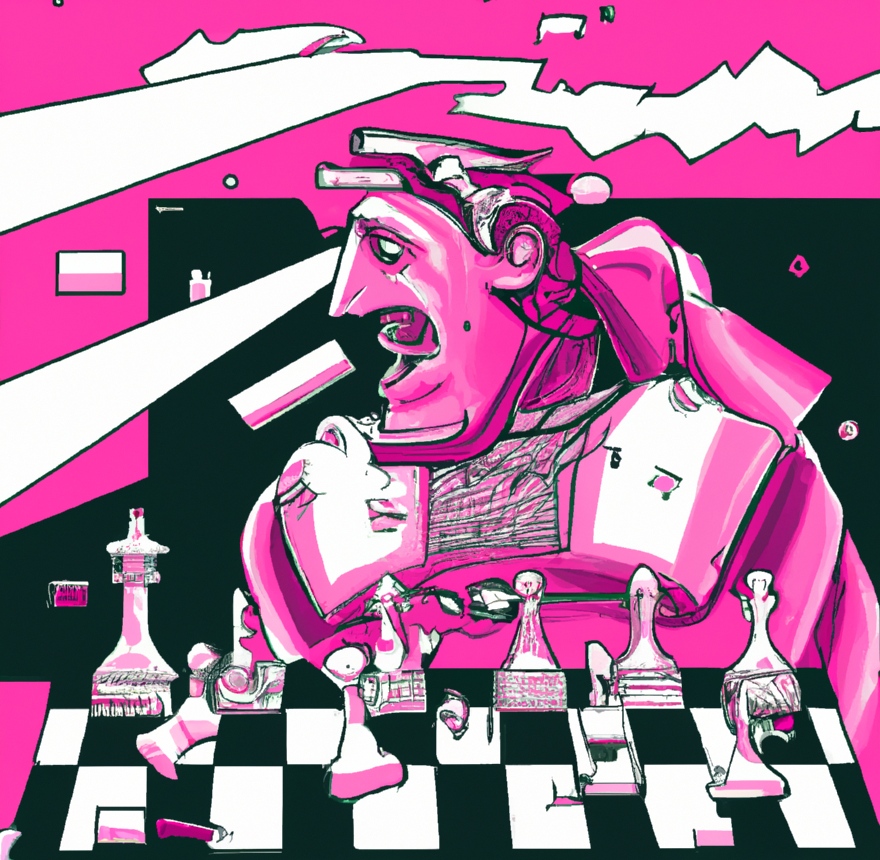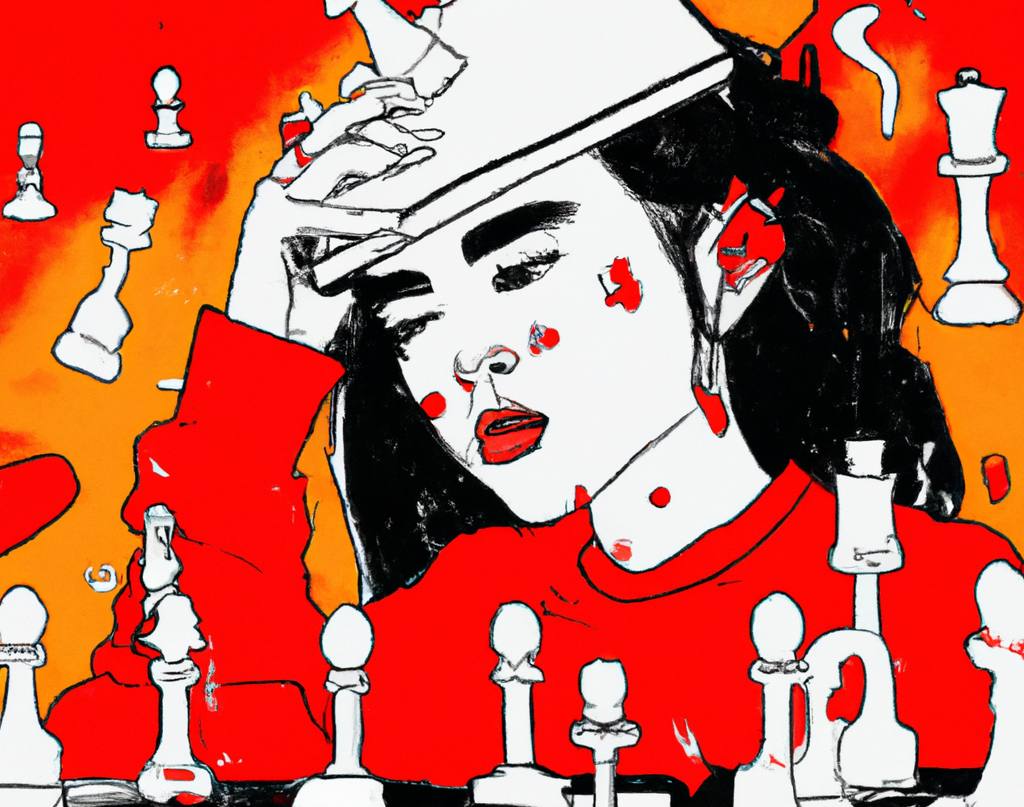Chess and Insanity: A Look at the Facts
For centuries, chess has been considered a strategic and intellectual game. But some believe that the intense focus and mental strain required to play the game can lead to insanity. Is there some truth to this and should you be worried about going crazy when playing chess? Probably not. But there is at least some truth to the myth of chess leading people into insanity. Let’s look at the facts together.

Can Chess Cause Mental Illness?
There are several theories on why this might be the case. One theory is that the constant problem-solving and decision-making required in chess can lead to a state of mental exhaustion, which can cause some players to lose touch with reality.
Another theory is that the high level of competition in chess can lead to intense feelings of stress and anxiety, which can manifest as mental health issues. This is especially true for professional chess players who are under constant pressure to perform at the highest level.
However, there is no scientific evidence at all that supports these theories. Therefore it is safe to assume that chess does not make people go crazy or cause mental illness on its own. However, people with preexisting mental conditions might see them worsened by the increased stress that playing chess can cause in some players.
Bobby Fischer: A Common Example Examined
Bobby Fischer was a legendary American chess player who is widely regarded as one of the greatest players in the history of the game. In 1972, Fischer won the World Chess Championship, becoming the first and only American to do so. He eventually developed paranoid schizophrenia and was institutionalized for several years before his death in 2008. This has led many to question whether Fischer’s insanity was caused by his passion for chess.
But, did chessalone cause his mental issues? Most definitely not. There is no evidence to suggest that chess was the primary cause of Fischer’s mental health issues. While the intense pressure and isolation of being a professional chess player may have contributed to his mental health issues, they were likely the result of a combination of factors.
One important factor to consider is Fischer’s personal history. Fischer was raised in an unstable and tumultuous home environment, and he had a difficult relationship with his parents. His father was a biophysicist who was arrested and imprisoned for espionage, and his mother was a communist activist who had a history of mental illness. This challenging upbringing may have had a profound effect on Fischer’s mental health, regardless of his involvement in chess.
Another factor to consider is the genetic factors that may have played a role in Fischer’s mental health issues. Mental illness can often be hereditary, and it is possible that Fischer inherited a predisposition to certain mental health conditions from his parents. This, combined with his challenging upbringing, could have contributed to the development of his mental health issues.
A Little Bit of Truth: Chess Can Worsen Some Mental-Health Issues
One mental health issue that can be exacerbated by playing chess is anxiety. The intense focus and pressure that comes with playing a competitive game of chess can increase feelings of anxiety in some individuals, especially those who are already prone to anxiety disorders. The constant mental strain of trying to outsmart an opponent and make the best moves can also trigger anxiety attacks in some players.
In addition, chess can also exacerbate feelings of isolation and loneliness in some individuals. While playing chess can be a social activity, it can also be a solitary one. Some players may become so focused on the game that they isolate themselves from others and lose touch with their social support network. This isolation can lead to feelings of loneliness and depression, which can further worsen mental health issues.

However, there is evidence to suggest that playing chess can actually have a positive impact on mental health, for example through stress-relieving properties some players might enjoy when playing the royal game. A study published in the journal Cognitive Processing found that chess players had better cognitive function and brain connectivity compared to non-players.
Conclusion: No, Chess Will Not Make You Go Crazy
While some people may claim that chess can drive people mad, there is no evidence to support this claim. In fact, many studies have shown that playing chess can actually have numerous benefits for the brain. Like any activity, chess can and should be enjoyed in moderation.
What are your experiences with chess and mental health issues? Feel free drop us a line at [email protected] and comment on your experiences (we will keep everything confidential, of course!).

